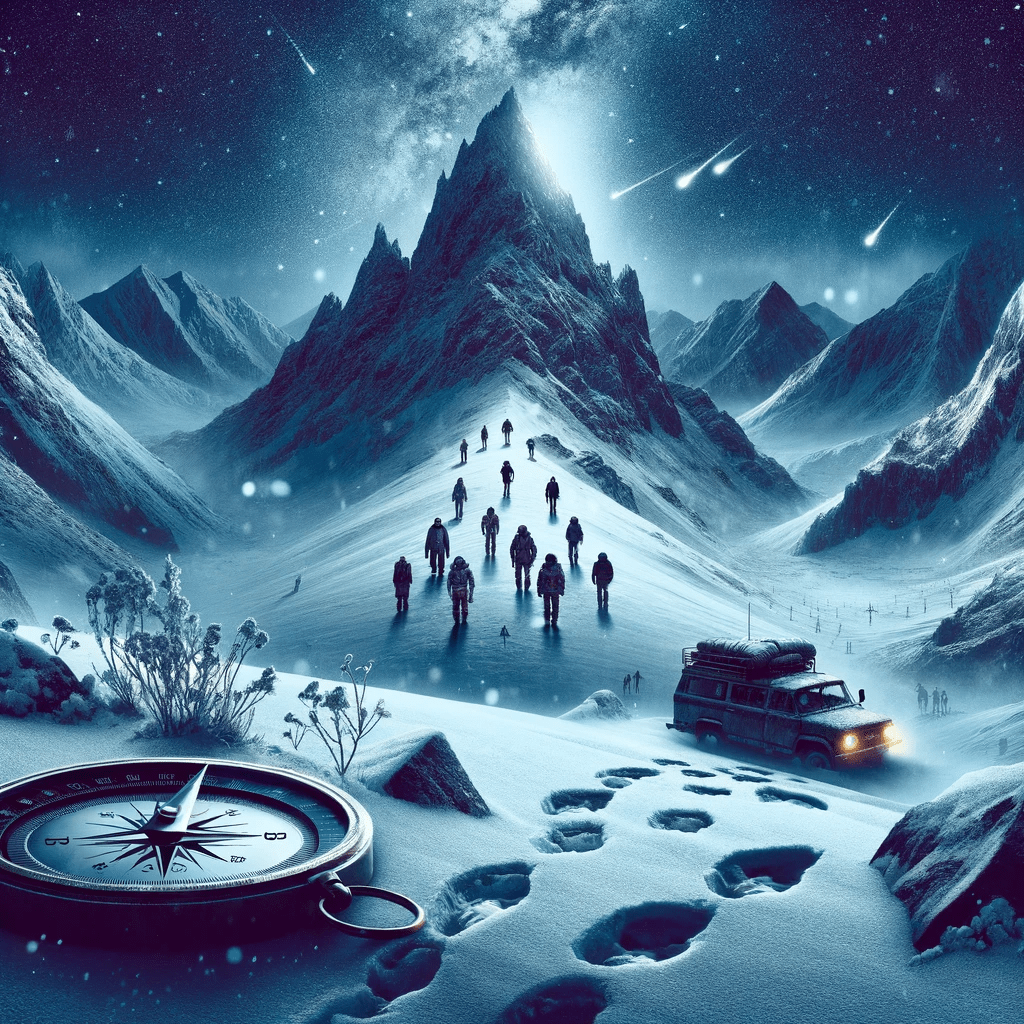Dead Mountain: The Untold True Story of the Dyatlov Pass Incident

“Dead Mountain: The Untold True Story of the Dyatlov Pass Incident” by Donnie Eichar offers a meticulously researched account of one of history’s most enduring mysteries—the 1959 Dyatlov Pass tragedy. This catastrophic event unfolded in the remote Ural Mountains, where nine skilled hikers, all young and experienced members of a Soviet sports club, embarked on an ambitious winter expedition. Their journey ended in disaster when their bodies were discovered under inexplicable circumstances, scattered across a snowy, desolate landscape. Eichar reconstructs the events leading to their demise with an impressive level of detail, piecing together their final days from diaries, photographs, and meticulous government records.
The book immerses readers in the Soviet-era context, shedding light on the hikers’ personalities, ambitions, and camaraderie. Eichar paints vivid portraits of the group, including Igor Dyatlov, the expedition leader whose passion for adventure inspired the challenging journey. Through these profiles, the book brings a human dimension to the tragedy, enabling readers to connect with the individuals behind the headlines. Eichar also delves into the political and cultural environment of late 1950s Soviet Union, a period characterized by a blend of optimism for scientific achievement and the looming shadow of Cold War secrecy.
Eichar’s narrative alternates between three interwoven perspectives: the hikers’ experience as they traversed the treacherous terrain of the Ural Mountains; the official search and investigation that unfolded after their disappearance; and Eichar’s personal investigative journey decades later. By retracing the group’s steps, Eichar provides a firsthand sense of the region’s unforgiving wilderness. His trip to the site underscores the physical challenges faced by the hikers, amplifying the mystery of why they fled their tent so suddenly, leaving behind clothing and essential gear.
A highlight of the book is Eichar’s access to survivor Yuri Yudin, the tenth member of the group who was forced to turn back due to illness early in the trek. Yudin’s memories of his friends and the expedition add emotional weight to the narrative. Eichar also consulted with experts, reviewed autopsy reports, and examined previously classified Soviet documents, striving to unravel the sequence of events that led to the hikers’ deaths. The investigative process was marked by a commitment to factual accuracy, steering clear of the more sensationalized theories that have often clouded the Dyatlov Pass case.
The book looks deeply into the various hypotheses surrounding the incident. While Eichar acknowledges popular theories, such as an avalanche, military testing, or even extraterrestrial involvement, his investigation gravitates toward a scientifically grounded explanation. Central to his conclusions is the theory of infrasound—a natural phenomenon caused by powerful winds creating a pattern known as a Kármán vortex street. Eichar posits that infrasound may have triggered intense feelings of dread or panic among the hikers, prompting their abrupt and seemingly irrational behavior. This theory is supported by scientific evidence and offers a plausible account for the sequence of events, without resorting to speculative or conspiratorial explanations.
Beyond the scientific inquiry, Dead Mountain also examines the broader impact of the tragedy. Eichar explores the official investigation’s shortcomings, highlighting the frustrations of the victims’ families and the speculation that ensued when the Soviet government classified aspects of the case. The Dyatlov Pass incident left an indelible mark on Russian popular culture and continues to inspire curiosity and debate. Eichar’s respectful treatment of the story ensures that the focus remains on the human lives lost rather than the sensational aspects often associated with the case.
What sets Eichar’s work apart is his balanced approach, blending rigorous research with empathetic storytelling. His writing captures the haunting atmosphere of the Ural Mountains, the hikers’ sense of adventure, and the heartbreak of their untimely deaths. By presenting a cohesive and compelling account, Eichar not only honors the memory of the nine hikers but also provides readers with a thought-provoking exploration of a real-life mystery that defies simple explanations.
Dead Mountain stands as a testament to the enduring power of curiosity and the quest for understanding. It is both a tribute to the hikers and a meticulously crafted investigation into a tragedy that continues to captivate and confound. For anyone drawn to true stories of survival, mystery, and the intersection of human ambition with nature’s unforgiving forces, Eichar’s book is an essential read. It offers not only a window into the Dyatlov Pass incident but also a deeper understanding of how we grapple with the unknown.


